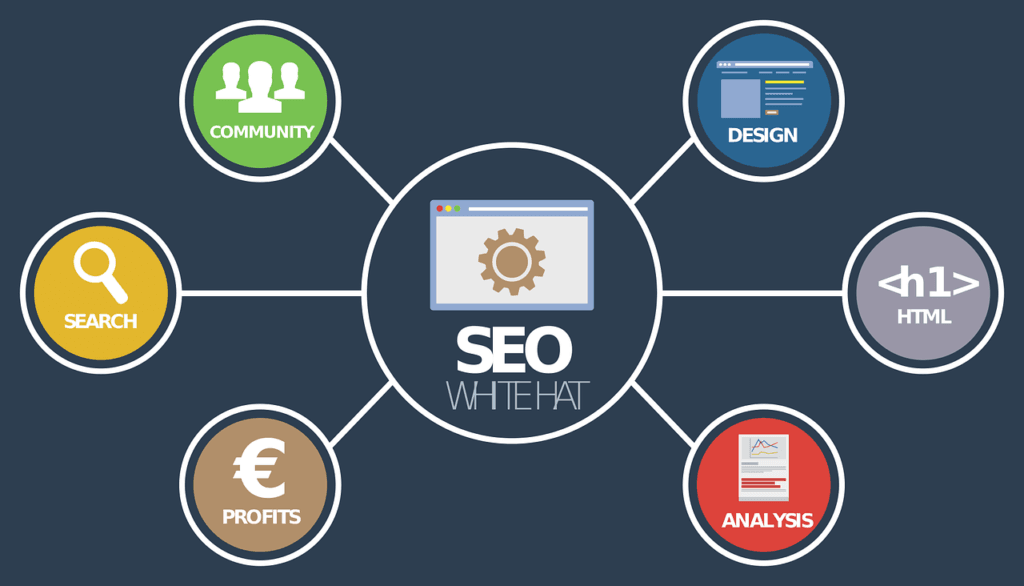This Article has been revised, edited and added to, by Poulomi Chakraborty.
- The Confluence of AI and Personalization
- AI Tools Revolutionizing Personalized SEO
- Deep Learning and User Experience
- Predictive Analytics for Anticipatory Personalization
- Dynamic Content Creation and Curation
- Establishing a Foundation for Dynamic Content
- Strategies for Dynamic Content Creation
- Dynamic Content Curation for Enhanced User Experience
- Continuously Optimizing Content for SEO
- Prioritizing Data Privacy and Security
- Mitigating the Risks of Over-Personalization
- Ensuring Fairness and Bias Mitigation
- Promoting Ethical AI Use
- The Role of AI in Enhancing Mobile SEO
- Conclusion: The Transformative Power of AI in Travel SEO
The world of travel has been undergoing a monumental shift in the digital age, driven by technological advancements and an ever-evolving consumer base. Among the many technologies leading this transformation, Artificial Intelligence (AI) stands at the forefront, particularly in the realm of SEO. Let’s delve into how AI, coupled with personalized experiences, is reshaping the travel industry’s SEO.
The Confluence of AI and Personalization

The intersection of Artificial Intelligence (AI) and personalization within the travel industry’s SEO strategy represents a dynamic and innovative frontier. This synergy not only enhances user experiences but also elevates SEO performance, a critical advantage in the competitive digital landscape. For startup founders venturing into the travel sector, understanding and leveraging this confluence can be a game-changer. Here’s how to strategically approach it.
Understanding the Dynamics
AI and personalization, when intertwined, create a powerful mechanism for predicting and fulfilling individual traveler needs. This capability goes beyond mere customization; it’s about crafting experiences that resonate on a personal level with each user. The magic lies in AI’s ability to sift through and analyze vast amounts of data, learning user preferences and behaviors to deliver highly relevant content and recommendations.
Strategic Implementation for Startups
For startups, the integration of AI and personalization must begin with a clear strategy. This strategy should focus on collecting and utilizing data effectively, choosing the right AI tools, and constantly refining the user experience based on insights gained. Here’s how to put this strategy into action:
Data-Driven Foundation
- Collecting Comprehensive Data: Start by gathering a wide array of data points about your users. This includes demographic information, browsing behavior, booking history, and feedback. Ensure compliance with data protection regulations to maintain user trust.
- Utilizing Predictive Analytics: Employ predictive analytics to understand future consumer behaviors based on historical data. This can inform everything from personalized marketing campaigns to customized travel recommendations, setting the stage for a deeply personalized user experience.
Selecting AI Technologies
- Choosing the Right AI Tools: Not all AI technologies are created equal. Select tools that best fit your specific objectives. For example, Natural Language Processing (NLP) can enhance search functionality and customer service, while machine learning algorithms can personalize content and recommendations in real-time.
- Integration with Existing Systems: Ensure the AI solutions you choose can seamlessly integrate with your existing platforms and systems. This cohesion is vital for delivering a unified and personalized user experience across all touchpoints.
Enhancing User Experiences
- Personalized User Interfaces (UIs): Use AI to create dynamic UIs that adapt based on the user’s preferences and behavior. For instance, if a user frequently books beach vacations, the homepage can automatically highlight beach destinations or special deals on seaside resorts.
- Customized Content Delivery: AI can curate and deliver content that matches the user’s interests and stage in the travel planning journey. Whether it’s inspirational blog posts for someone dreaming of their next vacation or practical guides for someone in the planning phase, personalized content keeps users engaged and moving through the sales funnel.
Continuous Improvement and Adaptation
- Leveraging User Feedback: Implement mechanisms to gather and analyze user feedback continuously. AI can help identify patterns and insights in the feedback data, which can then be used to further refine and personalize the user experience.
- A/B Testing: Regularly conduct A/B testing on different aspects of your AI and personalization strategies. This will help you understand what works best for your audience and adjust your tactics accordingly.
Navigating Challenges
While the potential of AI and personalization is vast, startups must navigate several challenges, including ensuring data privacy, avoiding over-personalization, and maintaining an authentic human touch. Being transparent about data use, allowing users to control their personalization settings, and blending automated solutions with human customer service can help address these challenges.
AI Tools Revolutionizing Personalized SEO
The digital age has ushered in a plethora of AI tools, each with the potential to revolutionize how the travel industry approaches SEO. For startups, integrating these tools into your SEO strategy is not just about staying competitive; it’s about redefining user experience and engagement. Let’s delve deeper into how strategic deployment of AI tools can elevate personalized SEO efforts.
Leveraging Natural Language Processing (NLP)
NLP stands as a cornerstone in understanding and optimizing the user’s search intent. This technology goes beyond keyword matching, delving into the nuances of human language, and allowing platforms to connect with users in more meaningful ways.
Crafting Conversational Content
The rise of voice search and conversational queries demands content that aligns with natural speech patterns. NLP enables the creation of content that not only ranks well but also resonates with the user’s intent and context. Startups should focus on generating content that answers questions, solves problems, and engages users in a conversational manner.
Enhancing User Queries Understanding
Through NLP, travel platforms can better understand the subtleties of user queries, including the intent behind search terms. This understanding allows for the delivery of search results that are more aligned with the user’s needs, whether they’re looking for inspiration, planning a trip, or ready to book.
Utilizing Machine Learning for Personalized Experiences
Machine learning algorithms are at the heart of personalization, continuously learning from user interactions to deliver more relevant content and recommendations.
Predictive Personalization
Startups can use machine learning to predict future user behavior based on past interactions. By analyzing data points such as previous searches, bookings, and user ratings, AI can tailor suggestions and content, making each user’s experience unique and highly relevant.
Real-Time Content Optimization
Machine learning allows for the dynamic adjustment of content and recommendations in real-time. This means that as a user interacts with your platform, the content they are presented with adjusts to reflect their preferences and actions, making for a highly personalized browsing experience.
Integrating Chatbots and Virtual Assistants
Chatbots and virtual assistants, powered by AI, provide immediate, personalized interaction with users. They can handle inquiries, offer recommendations, and assist with bookings, all while learning from user interactions to improve their responses.
Streamlining Customer Service
Incorporate AI-driven chatbots to offer 24/7 customer support, answering common queries and providing personalized recommendations. This not only improves user satisfaction but also allows you to gather data on user preferences and concerns, further refining your SEO and personalization strategies.
Personalized Interaction at Scale
Virtual assistants can provide a level of personalized interaction that would be impossible to achieve manually. They can guide users through the booking process, offer tailored travel advice, and even upsell services in a way that feels natural and personal.
Exploiting Deep Learning for Advanced Insights
Deep learning, through its complex neural networks, offers profound insights into user behavior, enabling the creation of highly personalized user experiences.
Advanced Pattern Recognition
Utilize deep learning to identify patterns in user behavior that are not apparent through traditional analytics. This can include preferences for certain types of destinations, travel times, or even content formats, allowing for a deeper level of personalization in your SEO strategy.
Image and Voice Recognition for Enhanced Search
Incorporate image and voice recognition technologies to cater to the growing trend of non-text-based searches. By understanding and optimizing for these search inputs, you can capture a broader audience and provide a more intuitive search experience.
Deep Learning and User Experience

In the evolving landscape of the travel industry, the application of deep learning technologies offers unprecedented opportunities to enhance user experience (UX). This advanced AI capability allows startups to not only meet but exceed customer expectations through personalized and intuitive interactions. By analyzing data at a granular level, deep learning facilitates the creation of highly tailored experiences that captivate and engage users.
Revolutionizing Personalization Through Deep Learning
Deep learning’s ability to process and analyze vast datasets with complex algorithms enables startups to unlock new dimensions of personalization. This section explores how to harness deep learning to transform UX in profound ways.
Creating Hyper-Personalized User Journeys
Deep learning excels in identifying subtle patterns and preferences within user behavior, enabling the creation of hyper-personalized travel recommendations and content. Startups can leverage this to offer travel options and suggestions uniquely suited to each user’s tastes and preferences, significantly enhancing the decision-making process and user satisfaction.
Enhancing Content Relevance and Engagement
Utilizing deep learning to analyze user interaction with content allows startups to dynamically adjust and present the most relevant and engaging materials. Whether it’s travel guides, blog posts, or promotional offers, deep learning ensures that users are met with content that resonates, encouraging deeper engagement and loyalty.
Optimizing Search and Discovery with Deep Learning
The search and discovery process is a critical component of the user experience. Deep learning can refine this process, making it more intuitive and efficient for travelers seeking their next adventure.
Streamlining Search with Predictive Inputs
Implement deep learning algorithms to anticipate user queries and offer predictive search terms, saving users time and making the search process smoother. This anticipatory approach not only speeds up the user’s search but also makes it feel like the platform truly understands their needs and preferences.
Refining Discovery through Visual and Voice Search
As users increasingly lean on voice and visual searches, deep learning’s prowess in image and voice recognition becomes indispensable. By accurately interpreting and responding to these non-text queries, startups can cater to a broader range of user preferences and behaviors, making discovery more accessible and engaging.
Elevating User Interactions with AI-Driven Insights
Deep learning facilitates a deeper understanding of user emotions and intentions through advanced sentiment analysis and behavioral predictions. This intelligence can be used to tailor interactions and communications with users, fostering a more empathetic and responsive platform.
Predicting and Addressing User Needs
By predicting user needs before they are explicitly expressed, startups can proactively offer solutions and suggestions, demonstrating attentiveness and care towards the user’s experience. This proactive approach can significantly enhance user satisfaction and perceived value of the service.
Enhancing Customer Support with Emotional Intelligence
Incorporate deep learning into customer support channels to detect user sentiment and tailor responses accordingly. This emotional intelligence enables more empathetic and effective support, transforming routine interactions into meaningful touchpoints that build trust and loyalty.
Continuous Learning and Evolution
The dynamic nature of deep learning means that it continually improves with more data. Startups must embrace this continuous learning process, using it to constantly refine and enhance the UX.
Implementing A/B Testing for User Experience Optimization
Regular A/B testing, informed by deep learning insights, can help startups fine-tune user interfaces, features, and content delivery. This iterative process ensures the platform evolves in alignment with user preferences and behaviors, maintaining relevance and engagement over time.
Embracing User Feedback for Iterative Improvement
Encourage and analyze user feedback to guide the deep learning algorithms’ focus. This feedback loop allows for the calibration of AI models according to real user experiences, ensuring that the platform remains user-centric in its evolution.
Predictive Analytics for Anticipatory Personalization

In the competitive travel industry, staying ahead requires not just meeting customer expectations but anticipating them. Predictive analytics stands out as a key technological ally, enabling startups to forge deeper connections with their audience by predicting and acting on future user needs and behaviors. This section outlines strategic approaches to integrating predictive analytics into personalization efforts, creating anticipatory experiences that delight users and drive engagement.
Building a Predictive Model for Travel Preferences
The foundation of anticipatory personalization lies in constructing predictive models capable of accurately forecasting future traveler behaviors and preferences. This involves a multifaceted approach, focusing on data collection, analysis, and application in real-time scenarios.
Comprehensive Data Collection
Begin with gathering a broad spectrum of data, including user interactions, transaction history, search queries, and feedback. This data forms the raw material for your predictive models, offering insights into past and present user behaviors that can indicate future preferences.
Advanced Analytical Techniques
Employ advanced statistical methods and machine learning algorithms to analyze the collected data. These techniques identify patterns and trends that may not be immediately apparent, providing a solid basis for your predictive models. For instance, clustering algorithms can segment users into distinct groups based on similar behaviors or preferences, while regression analysis can predict future actions, such as the likelihood of a user booking a trip to a certain destination.
Personalizing User Experiences Before They Ask
With a robust predictive model in place, startups can move towards creating personalized experiences that anticipate user needs. This proactive personalization can take many forms, from personalized marketing messages to tailored travel recommendations.
Anticipating Travel Needs
Utilize your predictive analytics framework to foresee individual user needs before they explicitly express them. For example, if your model predicts a high likelihood of a user planning a family vacation during school breaks, you can proactively send them family-friendly vacation packages and special offers.
Tailored Content Delivery
Predictive analytics allows for the dynamic customization of content, ensuring that users are presented with articles, blogs, and videos that are most relevant to their predicted interests. This not only enhances the user experience but also increases the likelihood of user engagement and conversion.
Enhancing Booking and Planning Processes
Predictive analytics can streamline the booking and planning process, making it more efficient and user-friendly. By anticipating the user’s next steps, startups can simplify decision-making and reduce friction, leading to higher conversion rates.
Streamlining Search and Booking
Optimize the search and booking process by using predictive analytics to suggest destinations, accommodations, and travel dates based on the user’s past behavior and preferences. This reduces the cognitive load on users and makes the planning process more intuitive.
Dynamic Pricing and Offers
Implement dynamic pricing strategies based on predictive models that take into account demand trends, user price sensitivity, and historical booking patterns. This approach not only maximizes revenue but also ensures users are presented with offers that are compelling and timely.
Continuous Optimization Through Feedback Loops
The effectiveness of predictive analytics in personalization is contingent upon continuous refinement. By establishing feedback loops, startups can gather insights into the accuracy of their predictions and the satisfaction of their users, allowing for ongoing optimization.
Real-Time Data Integration
Incorporate real-time data into your predictive models to ensure they remain accurate and relevant. User behaviors and preferences can change rapidly, and your models should evolve accordingly to stay effective.
User Feedback and Iteration
Actively seek and analyze user feedback to assess the success of your anticipatory personalization efforts. This feedback should inform iterative improvements to your predictive models, ensuring they consistently meet and exceed user expectations.

Related: Check out our free SEO suite

Dynamic Content Creation and Curation
In the rapidly evolving digital landscape of the travel industry, dynamic content creation and curation powered by AI technologies stand as pivotal strategies for enhancing SEO and user engagement. This approach enables startups to not only deliver content that resonates deeply with their audience but also to ensure that this content is continuously updated and relevant. Here’s how startups can strategically leverage dynamic content creation and curation for a competitive edge.
Establishing a Foundation for Dynamic Content
The first step in leveraging dynamic content is to build a robust framework that supports the real-time creation and curation of content. This involves integrating AI tools that can analyze user data and content performance, providing insights that guide content strategy.
Implementing AI-driven Analytics
Utilize AI-driven analytics to gain a deeper understanding of your audience’s preferences and behaviors. This technology can identify trends and patterns in content engagement, enabling you to tailor your content strategy to meet user demands effectively.
Leveraging User Data for Content Personalization
Collect and analyze user data, including browsing history, search queries, and interaction patterns, to personalize content dynamically. This personalization should extend beyond mere recommendations, encompassing the customization of content themes, formats, and delivery channels to match user preferences.
Strategies for Dynamic Content Creation

With a solid foundation in place, startups can employ strategies for dynamic content creation that keeps their platform fresh, engaging, and SEO-friendly.
Real-time Content Adaptation
Develop systems that allow for the real-time adaptation of content based on current trends, user behavior, and feedback. This could mean updating articles with the latest travel advice, incorporating user-generated content, or highlighting trending destinations to keep content current and engaging.
AI-powered Content Generation
Explore AI-powered content generation tools to produce new content or repurpose existing content. These tools can help create articles, blog posts, and even video content that is tailored to the interests of your audience, enhancing engagement and SEO performance.
Dynamic Content Curation for Enhanced User Experience
Curation is as important as creation in the dynamic content ecosystem. By curating content thoughtfully, startups can guide users to the most relevant and compelling content, improving user experience and engagement.
Personalized Content Feeds
Use AI to curate personalized content feeds for each user, displaying articles, deals, and recommendations based on their interests and past behavior. This not only makes the user feel understood but also increases the chances of engagement and conversion.
Interactive Content Discovery Tools
Incorporate interactive discovery tools, such as quizzes or interactive maps, that engage users and guide them to content that matches their interests. These tools can be dynamically adjusted based on user interactions and preferences, providing a continuously evolving and engaging experience.
Continuously Optimizing Content for SEO
Dynamic content creation and curation must go hand in hand with SEO optimization to ensure maximum visibility and reach.
Automated SEO Adjustments
Implement AI tools that automatically adjust content for SEO, including optimizing titles, meta descriptions, and keywords based on current trends and performance data. This ensures that your content remains competitive in search engine rankings.
User Engagement Analytics for SEO Refinement
Regularly analyze user engagement metrics to refine your SEO strategies. Understand which types of content drive traffic, engagement, and conversions, and use this information to optimize future content creation and curation efforts.
As startups in the travel industry increasingly rely on Artificial Intelligence (AI) and data-driven strategies to enhance SEO and personalize user experiences, they encounter a complex landscape of challenges and ethical considerations. Addressing these concerns thoughtfully is crucial not only for legal compliance and protecting user privacy but also for building trust and ensuring the long-term sustainability of their business models. Here’s a comprehensive guide to understanding and tackling these challenges strategically.
Prioritizing Data Privacy and Security
In the era of data breaches and increasing scrutiny over data practices, startups must place data privacy and security at the core of their operations. This involves more than just adhering to regulations; it’s about fostering a culture of respect for user data.
Implementing Robust Data Protection Measures
Ensure that all data collected and processed is done so with the highest security standards, including encryption, secure data storage, and access controls. Regular security audits and compliance checks should be part of your operational routine to prevent data breaches and leaks.
Transparent Data Usage Policies
Clearly communicate to your users how their data is being used, stored, and protected. Transparency not only builds trust but also helps in aligning with regulatory requirements such as GDPR in Europe and CCPA in California. Include easy-to-understand privacy policies and consent forms as part of your user interface.
Mitigating the Risks of Over-Personalization
While personalization can significantly enhance the user experience, there’s a thin line between being helpful and invasive. Over-personalization can lead to discomfort and a sense of being monitored, potentially driving users away.
Balancing Personalization with User Comfort
Develop guidelines for personalization that respect user comfort and boundaries. This includes offering users the ability to control the level of personalization they receive and being mindful of not crossing into sensitive areas or making assumptions based on user data.
Avoiding Echo Chambers and Filter Bubbles
Design your algorithms to introduce a degree of serendipity and discovery beyond the user’s existing preferences. This not only enriches the user experience by exposing them to new ideas and possibilities but also helps in avoiding the creation of echo chambers that can limit the user’s worldview.
Ensuring Fairness and Bias Mitigation
AI algorithms are only as unbiased as the data they are trained on. Startups must be vigilant about the potential for bias in their AI models, which can lead to unfair treatment of certain user groups or skewed recommendations.
Regular Auditing for Bias
Conduct regular audits of your AI algorithms and the data they are trained on to identify and correct biases. This can involve diversity in testing teams and consulting with external experts to ensure your models are fair and inclusive.
Diverse and Representative Data Sets
Ensure that the data used to train AI models is as diverse and representative as possible. This can help mitigate biases from the outset and ensure that personalization algorithms serve all user groups effectively.
Promoting Ethical AI Use
The strategic use of AI in personalization efforts comes with a responsibility to use these technologies ethically, ensuring they contribute positively to the user experience and society at large.
Ethical AI Frameworks
Develop and adhere to ethical AI frameworks that guide decision-making around AI deployment. This includes considerations of user autonomy, consent, and the societal impact of your technologies.
Continuous Ethical Education
Invest in continuous education for your team on ethical AI use and data privacy. Understanding the evolving landscape of AI ethics and data protection laws is crucial for maintaining practices that respect user rights and societal norms.
The Role of AI in Enhancing Mobile SEO

The surge in mobile usage has fundamentally shifted how consumers interact with travel platforms. In this mobile-first era, optimizing for mobile SEO is not just an option but a necessity for travel startups aiming to capture and engage a mobile-savvy audience. Artificial Intelligence (AI) emerges as a crucial ally in this endeavor, offering innovative ways to enhance mobile SEO and ensure travel platforms deliver superior user experiences tailored to mobile devices. Here’s how startups can strategically employ AI to elevate their mobile SEO game.
Optimizing for Mobile User Behavior
Understanding and adapting to the nuances of mobile user behavior is key to effective mobile SEO. AI can provide deep insights into how users interact with travel platforms on mobile devices and enable personalized experiences that cater to mobile-specific preferences.
Analyzing Mobile User Intent
Utilize AI to analyze search queries and user interactions on mobile devices to gain insights into mobile-specific user intent. This can inform content creation and optimization strategies that cater specifically to the needs and behaviors of mobile users, such as prioritizing concise, actionable content that answers their immediate questions.
Tailoring Content for Mobile Consumption
Crafting content that is optimized for mobile consumption involves more than just making it responsive. AI can help identify the types of content that perform best on mobile, such as short-form videos or interactive maps, and adapt your content strategy accordingly. This ensures that your content is not only accessible but also engaging for mobile users, improving dwell times and reducing bounce rates.
Enhancing Mobile Page Experience
Google’s emphasis on page experience as a ranking factor underscores the importance of ensuring that mobile pages are fast, responsive, and user-friendly. AI technologies can play a pivotal role in optimizing these aspects to boost mobile SEO.
Accelerating Page Speed with AI
Leverage AI tools to analyze and optimize page loading times on mobile devices. This can include automatically resizing images, optimizing code, and prioritizing above-the-fold content to ensure that mobile pages load quickly, enhancing user experience and SEO performance.
Personalizing the Mobile Experience
AI can dynamically adjust the layout, content, and features of mobile pages to match the user’s preferences and behavior, creating a highly personalized mobile experience. For instance, if a user frequently books family-friendly hotels, the mobile site can prioritize displaying these options.
Levering Voice Search and Local SEO
With the proliferation of smartphones and voice assistants, voice search has become increasingly important. AI can enhance a travel startup’s visibility in voice search results, which are often locally oriented and require concise, direct answers.
Optimizing for Voice Queries
Incorporate AI to better understand and match the conversational tone and structure of voice search queries. This involves optimizing content to answer questions directly and succinctly, using natural language processing (NLP) to tailor content to the spoken queries typical of mobile users.
Boosting Local SEO with AI Insights
AI can analyze location-based search trends and user preferences to optimize for local SEO. This includes personalizing content and recommendations for users based on their current or frequently visited locations, making your platform more relevant and visible in local search results.
Embracing Next-Gen Technologies for Mobile SEO
To stay ahead in the competitive travel industry, startups must look beyond current practices and explore how emerging technologies can further enhance mobile SEO.
Implementing AMP with AI Optimization
Accelerated Mobile Pages (AMP) provide a faster loading experience for mobile users. AI can assist in customizing AMP content to ensure it’s not only quick to load but also personalized and engaging, further improving SEO and user satisfaction.
Utilizing AI for Predictive Mobile UX
Deploy AI to predict and address user needs even before they articulate them, based on their past behavior and interactions on mobile. This predictive capability can transform the mobile user experience, making it more intuitive and seamless.
Conclusion: The Transformative Power of AI in Travel SEO
The digital era has heralded numerous innovations, but the confluence of artificial intelligence and personalization in the travel industry’s SEO stands out as a particularly transformative development. As we’ve explored in this article, AI’s capabilities, from deep learning and predictive analytics to dynamic content creation, are revolutionizing how travel platforms engage with users.
Through AI, travel platforms can provide a more tailored experience, anticipating user needs and delivering content and services that resonate with individual preferences. This not only enhances user engagement and satisfaction but also leads to better SEO outcomes, ensuring platforms remain visible and competitive in a saturated online space.
However, with the immense potential of AI comes responsibility. Ethical considerations, especially concerning data privacy and inclusivity, need to be at the forefront of AI-driven personalization strategies. It’s also essential to strike a balance between automation and the irreplaceable human touch, ensuring users feel truly understood and valued.
The future of travel SEO is undeniably intertwined with AI. As technologies evolve and user expectations shift, the industry must stay agile, embracing innovations while always prioritizing the user experience. The journey ahead is promising, and those who harness the power of AI effectively are set to lead the way in offering memorable, personalized travel experiences for all.
Read Next
- Mobile-First SEO for Financial Services
- Implementing HTTPS for Financial Websites: Why Security Matters
- The Importance of Technical SEO in Financial Services
- On-Page SEO Essentials for Banking Websites
- Keyword Research Basics for Financial Services SEO





















Comments are closed.